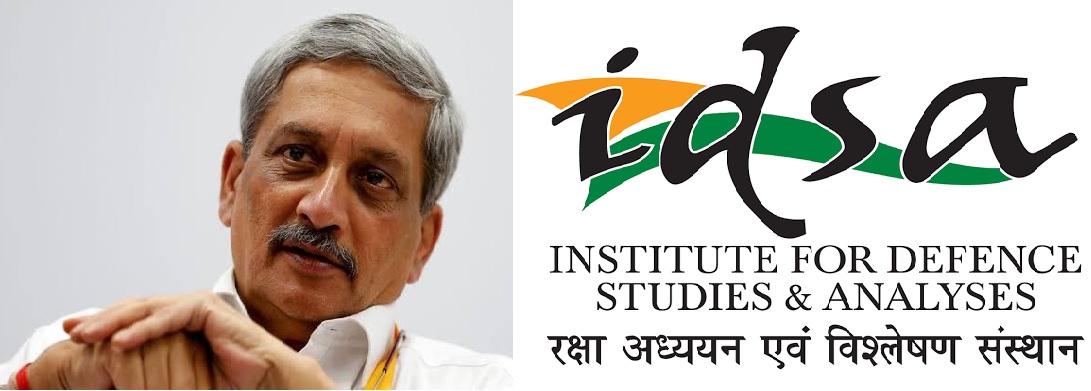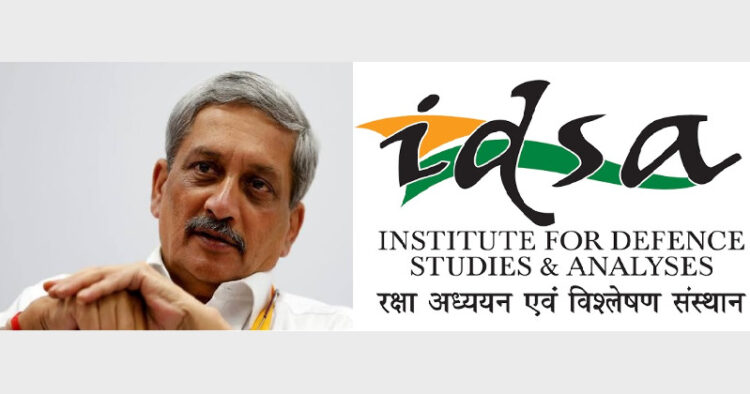Late Manohar Parrikar was instrumental in enhancing India’s security capacities, implementation of long-standing OROP and also initiated major military reforms.

The Central Government has decided to rename ‘The Institute for Defence Studies and Analyses’ (IDSA) as ‘Manohar Parrikar Institute for Defence Studies and Analyses’. The decision was taken to honour the commitment and legacy of late Manohar Parrikar, says the Ministry of Defence press release.
The government while renaming the institute said that it will align the vision and aspiration of the premier defence Institute with the contribution of the former Defence Minister and Padma Bhushan awardee Shri Manohar Parrikar. Defence Minister Rajnath Singh chairs Executive committee of the institute’s society.
A life less ordinary
An epitome of integrity and dedication in public life, throughout his career, late Manohar Parrikar showed a tremendous fighting spirit, taking on the odds with fearlessness. He was India’s Defence Minister from November 9, 2014 to March 14, 2017 when he steered the Ministry through the tough challenges of attacks like Pathankot and Uri and responded to these with exemplary boldness.
When late Manohar Parrikar was the Defence Minister, India witnessed a series of decisions that enhanced India’s security capacities, boosted indigenous defence production and bettered the lives of ex-servicemen. His biggest contribution was towards the implementation of long-standing One Rank One Pension (OROP) demand for the Armed Forces. He initiated major military reforms with the objective of having better teeth-to-tail ratio by setting up an expert committee under Lt Gen (Retd) DB Shekatkar for enhancing combat capability and rebalancing defence expenditure.
About IDSA
An autonomous body under Ministry of Defence, IDSA was established as a registered society in New Delhi in 1965, dedicated to objective research and policy relevant studies on all aspects of defence and security. Its aim is to promote national and international security through the generation and dissemination of knowledge on defence and security-related issues.
To achieve its goals, the IDSA undertakes scholarly research, policy-oriented research, dissemination of research findings, training and capacity building and public education.
The IDSA has a well-qualified multi-disciplinary research faculty drawn from academia, defence forces etc., representing a diversity of views. Research at the Institute is driven by a comprehensive agenda and the need to provide impartial analyses and policy recommendations. Since its inception, IDSA has served as a forum to debate important aspects of national and international security. The institute conducts several national and international conferences every year and regularly holds round tables and workshops on important developments.













Comments